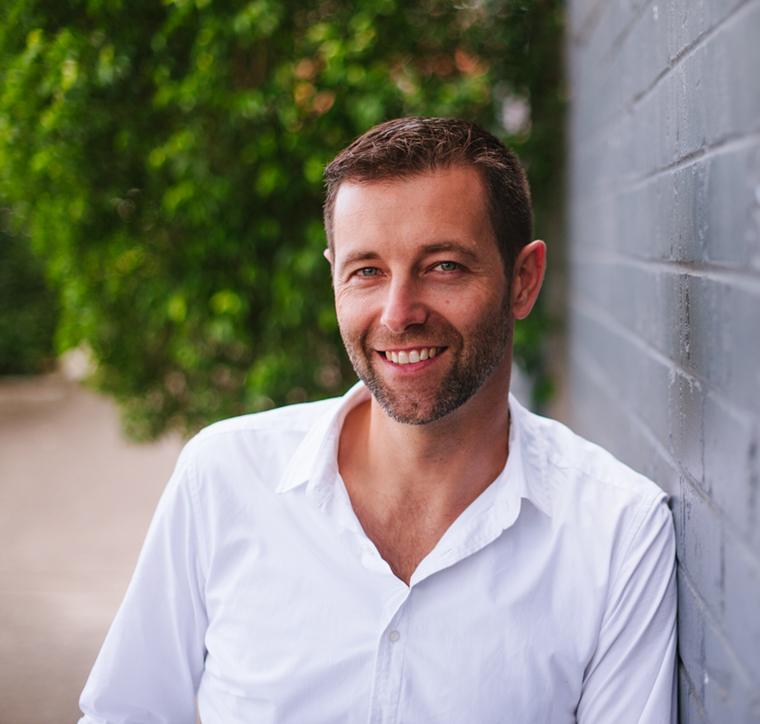The why behind why people don't see eye to eye
 Tim Minchin’s rendition a couple of weeks ago of I still call Australia home-(ophobic) was watched 2 million times and counting. According to Tim, if you vote ‘no’ you are a homophobic, ‘bigoted c#nt.’ Which is about as silly as that myth that all gay men must have had poor father figures growing up. The ones I know seem to have had great dads. Where is the Myth Busters team when you need them!
Tim Minchin’s rendition a couple of weeks ago of I still call Australia home-(ophobic) was watched 2 million times and counting. According to Tim, if you vote ‘no’ you are a homophobic, ‘bigoted c#nt.’ Which is about as silly as that myth that all gay men must have had poor father figures growing up. The ones I know seem to have had great dads. Where is the Myth Busters team when you need them!Why is it that we have this tendency to bypass moderation and portray the very worst version of our opponents to others? Why is it we want to shut down alternative viewpoints while we take the liberty to shout all the more loudly at them? I just wonder how productive this is.
If we zoom back from the matter of SSM, I think it’s good to remember there is much that we all share in common. Now I am proposing this via my Jesus-shaped world view which is still forming (over the past 30 years); and you may not share it. But humour me for a moment and see if we can agree on something:
Do you think all people have the same worth?
If God does exist, could God love you?
Do you make mistakes? Have you ever hurt someone?
Do you think you are right most of the time?
Do you think all people have the same worth?
The opening chapters of the bible explicitly teach me that life is sacred, every human being is created equal and bears the same image of God. A person's dignity is therefore a divine bestowal and not merely a product of people's approval of them.
If God does exist, could God love you?
The bible, and specifically the Cross teaches me that God’s love is indiscriminate and unbiased.
No one can claim to have a greater access to God nor greater merit based upon their lifestyle or works. This grace, by the way, is distinctive to Christianity among all the world’s religions.
No one can claim to have a greater access to God nor greater merit based upon their lifestyle or works. This grace, by the way, is distinctive to Christianity among all the world’s religions.
Do you make mistakes? Have you ever hurt someone?
Again the bible reveals how we ALL miss the mark, make mistakes and struggle with desires and influences competing for our heart. The bible calls this ‘sin’—and though people don’t like the word, it’s what we experience every day—both from us and toward us.
Do you think you are right most of the time?
We all want to be proven right, rationalise our actions, be excused from blame and affirmed in our opinions and behaviours. We have an innate ability to judge others,
but we are highly resistant to being judged.
but we are highly resistant to being judged.
We are all consciously and subconsciously wrestling with that nagging question of identity.
Who am I? Do I matter? Am I ok?
And we find all sorts of ways to reinforce and protect our identity.
Who am I? Do I matter? Am I ok?
And we find all sorts of ways to reinforce and protect our identity.
Do you need people in your life?
We all long for intimacy. We are all wired for deep abiding relationships, to be loved,
to be known and not cast off. And we each search for our people
—the ones that we can share life and story with in community.
to be known and not cast off. And we each search for our people
—the ones that we can share life and story with in community.
Have you changed in any way in the past 5 years?
We are all in process. We dream, learn, we succeed, we fail. The experiences of life are
formative to our belief systems and resulting behaviours, as are the voices we listen to.
We are all changing, but we’re not all changing in the same areas at the same time.
formative to our belief systems and resulting behaviours, as are the voices we listen to.
We are all changing, but we’re not all changing in the same areas at the same time.
If you can answer yes to most of these questions then surprise, we have much in common!
So what?
So firstly, we can perhaps recognise that when we are talking about the ‘issues’, we’re not talking about aliens or some strange mutation of humanity. We are talking about people who are not so different after all and have very similar drivers in their lives. Perhaps we should cut one another some slack. I have a small number of people in my life who are same sex attracted and I find them to be warm, generous and gracious people in spite of having been deeply wounded by so many throughout their lives.
Secondly, could we also acknowledge that our similarities become major points of difference in the light of our conscious and unconsciously formed worldviews. Our worldview provides us with a map by which we interpret those similarities. And, as we see in the present debate, that map can lead you in very different directions.
What is your map? How do you make up your mind about anything? Do you tend to go with the flow of popular opinion? Are you moved by what moves you emotionally? Do you prioritise your desires or what will satisfy them? Whose truth claims have you adopted as your own? Perhaps Freud’s? Marx’s? Depack Chopra’s? The Kardashians’? Your Facebook feed even? Or maybe you have embraced the truth statements of your parents, or your peers, or your political party.
We all live from a biased worldview that shapes our thinking about personal and social issues (there’s another similarity). But all too often people can’t seem to articulate what it is, or how it got there. So, in the absence of that information, we turn to simplistic slogans like ‘love is love’ or ‘Christians are bigots’ or conversely ‘god hates gays’ (and while I’m here - this last slogan is so abhorrently evil and biblically so fundamentally inaccurate, I have no idea how anyone, especially one who claims to follow Jesus, can utter the words). Maybe we resort to these simplistic, generalised and judgemental statements because it’s too complex or too draining to really dig any deeper.
At the base of all these baseless slogans lies for me some elementary questions that we’re not asking of ourselves and for that matter, each other anywhere near enough—the why behind the why:
What are the real sources of authority behind our lives and beliefs?
Are those sources trustworthy and why?
I think this may be the underlying reason why people can be so similar, and why they can be poles apart on an issue such as SSM.I am a Christian but I don't typically use that term because sadly, it’s become vague and laden with baggage these days. More descriptively, I’m a person with Jesus constantly on my mind and thoroughly compelled by both how Jesus lived and what Jesus taught. This is not a popular confession in our enlightened post-Christian society. But Jesus and more broadly the bible is my roadmap for life and, in all my imperfect ways, I choose to walk it out and maybe help others do likewise. If nothing else, I am at least showing my hand in terms of the authority source and rationale behind my beliefs. Perhaps that has more integrity than peddling beliefs that come from unidentified, ephemeral sources or merely one’s own flawed determination of what constitutes good and evil.
I get why Tim Minchin may feel righteously offended by 'Christians.' So do I, and I'm one of them! And perhaps there is also a back story here for Tim that fuels his rage? But does respectful disagreement between people really warrant the throwing of rhetorical grenades like 'homophobic' or 'bigoted c#nt?' Should rampant materialism, greed or indifference within society not also attract an equally passionate response? It doesn’t seem to.
And I can't help but ponder the long term ramifications for a society where everyone is an authority in themselves and there is no yielding to a unifying, enduring truth beyond us, that we can all navigate by? What might unravel as we progressively dismantle the spiritual and ethical foundations upon which our nation was built? What kind of people will we become? Will anything remain sacred? Ultimately, will life even matter?
What do you think?











